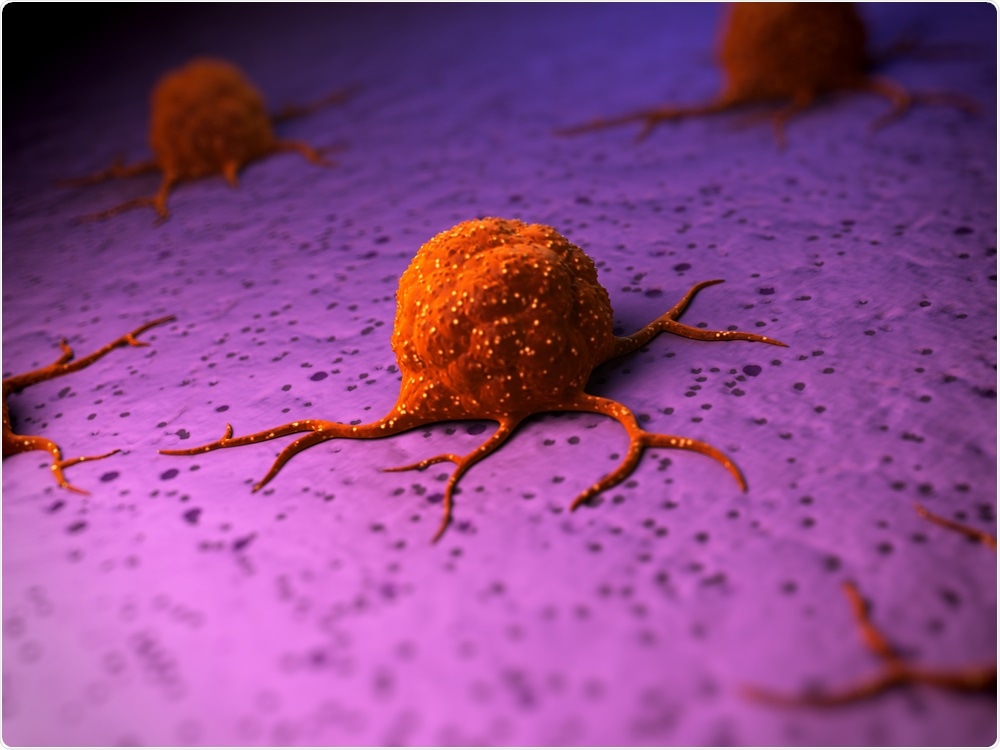
Revolutionary cancer drugs that target any tumor to be fast-tracked into hospitals by NHS
Patients in England could be some of the first in the world to be treated with revolutionary cancer drugs that can target any type of tumor. NHS chief executive, Simon Stevens, will announce today that the game-changing drugs will be fast-tracked by the NHS.
Stevens says the drugs, which are referred to as “tumor agnostic” drugs, offer potentially huge benefits to thousands of patients by providing a new way of targeting cancers that had previously been deemed untreatable.
 Sebastian Kaulitzki | Shutterstock
Sebastian Kaulitzki | ShutterstockA tumor-agnostic drug is a treatment that can target any type of cancer, irrespective of where in the body it originated or the tissue type in which it developed.
Currently, most cancer drugs are designed to target a tumor that has developed in a particular organ or tissue. These new drugs target specific but common mutations in tumors, meaning that they attack a tumor with the alteration, irrespective of where it is located in the body. This means they can be used to treat a range of cancer types, shrinking tumors in up to 75% of cases. Two drugs that do this are due to be made available within months.
Today, Stevens will announce at the NHS Confederation Conference in Manchester that plans are being made to ensure the game-changing treatments can quickly be made available to patients. Two of the drugs are due to be licensed later this year and depending on cost negotiations, could be approved for use soon after.
Cancer patients will ‘lead longer, healthier lives’
Earlier detection and treatment are a central focus in cancer research and form an important role in plans for the future of the health service.
Stevens is expected to tell the leaders at the conference that this exciting new breakthrough is the latest example of how the NHS can lead the way in the new era of personalised cancer care.
The move follows a decision made last year that England should be made the first European country to fund another ground-breaking pediatric treatment that instructs the body to target rogue cells. Stevens is also expected to announce that children should be among the first patients to receive the two new drugs.
In the case of these treatments, molecular screening of tumors can help doctors decide which drug may be the most effective. The development has been made possible by the NHS national genomic medicine and testing service that was launched last year. The service is used to test patients in order to find out who would benefit from targeted treatment, often when other treatment options are not applicable.
The genetic flaw that the new drugs target is a neurotropic tyrosine receptor kinase(NTRK) gene fusion. The alteration is most commonly found in rare cancers such as infantile fibrosarcoma but is also present at low levels in more common cancers.
The drugs work by blocking NTRK, which results in shrinkage of the tumor. Initial trials have shown that they shrink the tumors in up to 75% of cases. One of the drugs was developed by Bayer and the other was developed by Roche.
A universal treatment
Health officials are expecting both the drugs to benefit around 850 patients annually, while many thousands per year are expected to eventually benefit from other therapies in the pipeline.
New drugs usually require approval from the National Institute for Health and Care Excellence for clinical use in each individual type of cancer they are designed to treat such as breast or colon cancer. However, once approval has been granted for these two new drugs, they would be made available for the treatment of all cancers, without approval for any particular cancer being required.
Stevens is expected to encourage NHS health leaders to get ready to introduce the therapies, ahead of meetings being held next week about how to ensure the drugs are quickly made available.
Today, he will also urge drug manufacturers to establish treatment prices that are fair and affordable. Several pricing deals have been made between manufacturers and the NHS in recent months, with the exception of a treatment for cystic fibrosis that the NHS has refused to fund.
Steps you can take to reduce your risk cancer
- Maintain a healthy weight and avoid weight gain as an adult
- Keep active on a day-to-day basis by walking more and sitting less, for example
- Follow a fiber-rich diet that is low in fat, starches and sugars and limit intake of fast foods.
- Limit intake of red and processed meat. Do not eat more than moderate amounts of beef, lamb and pork and only eat little, if any, processed meat
- Restrict the intake of drinks with added sugar and drink mainly unsweetened drinks and water
- Reduce alcohol intake. In terms of cancer prevention, drinking no alcohol at all is best
- Avoid using nutritional supplements as a way of preventing cancer and maintain nutritional needs through diet
- If possible, mothers should breastfeed their babies
- Follow all recommendations provided by a healthcare professional following a cancer diagnosis.






















.png)












No hay comentarios:
Publicar un comentario